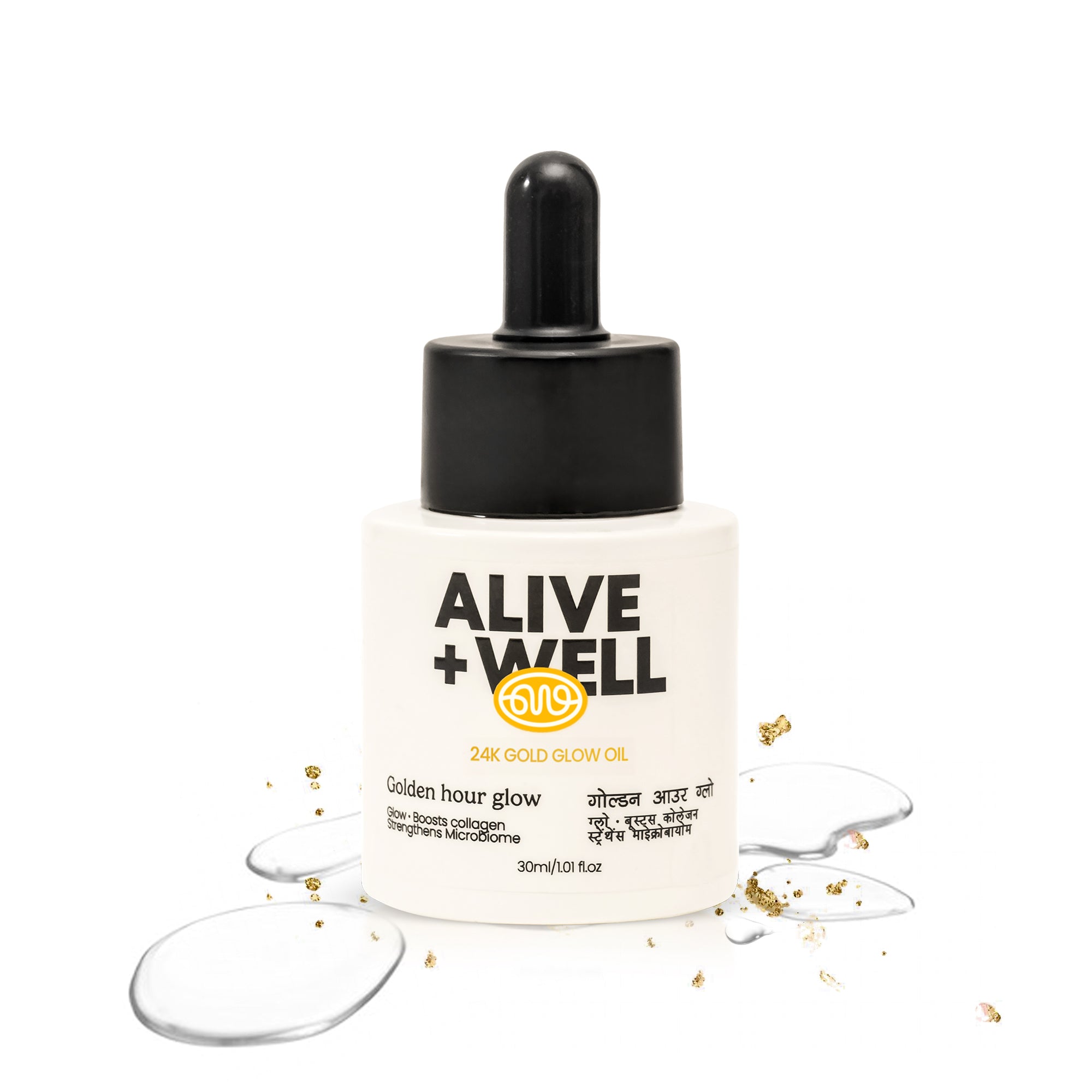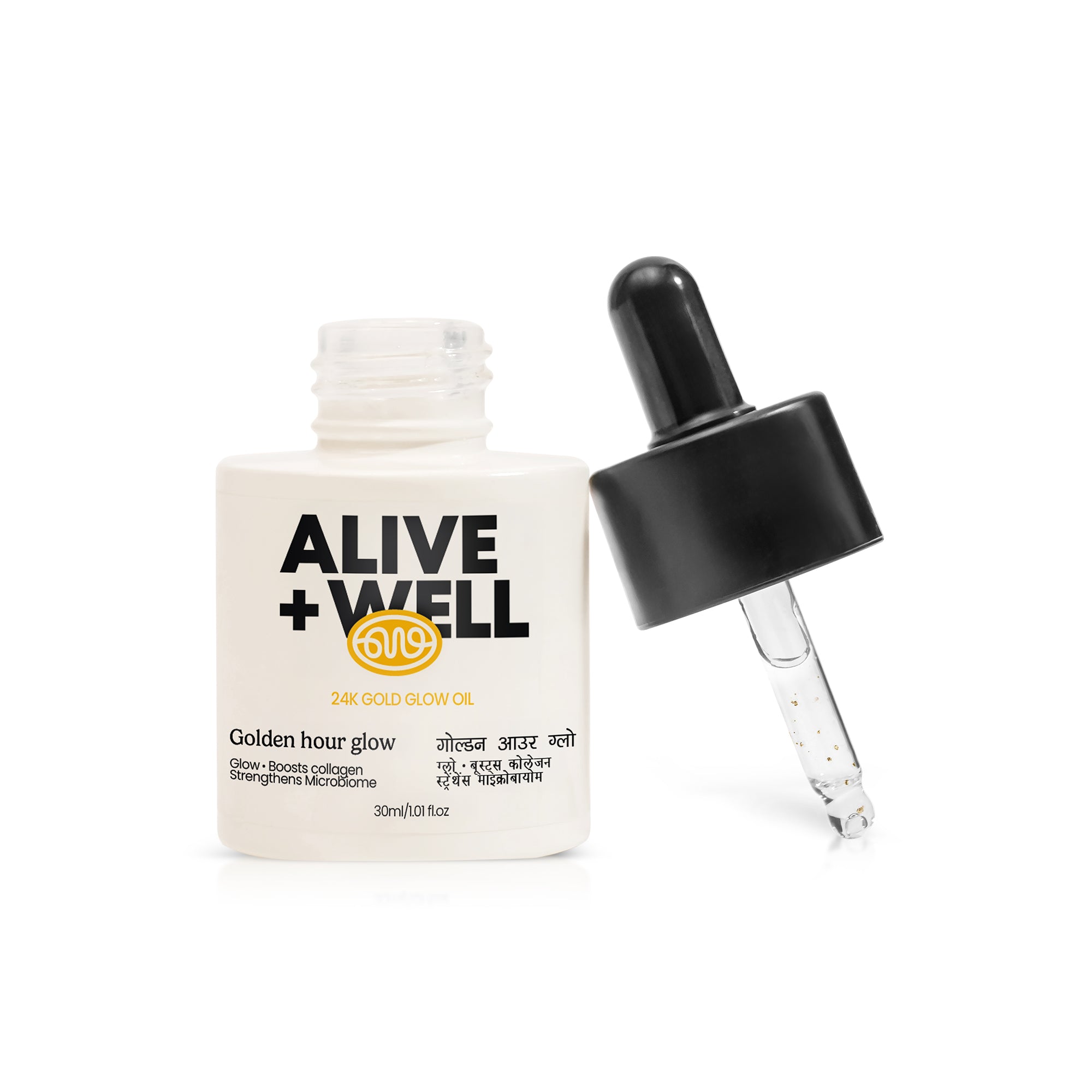Face Oil For Combination Skin
Face Oil For Combination Skin
Finding the best face oil for combination skin can feel challenging, especially when you're trying to balance dry patches with oily zones. However, the right face oil can actually help regulate sebum production, hydrate dry areas, and leave your skin looking radiant and healthy. Contrary to common myths, face oils—especially lightweight, non-comedogenic, and natural options—can be incredibly beneficial for combination skin.
In India, where climate and pollution vary across regions, choosing the best face oil for combination skin in India means focusing on oils that are nourishing yet fast-absorbing. Oils like jojoba, rosehip, and squalane work well because they hydrate without clogging pores or making the skin greasy. These oils are also packed with antioxidants and vitamins that support skin health.
Best face oil for combination skin in India
For nighttime routines, the best night face oil for combination skin should help repair the skin barrier, even out texture, and reduce fine lines. Those seeking anti-aging benefits can look for oils rich in essential fatty acids and natural retinoids, making them ideal as the best face oil for aging combination skin.
Whether you're targeting dryness, dullness, or early signs of aging, using a natural face oil for combination skin can bring visible improvements with consistent use.
Face Oil for Combination Skin in India
Choosing the right face oil for combination skin in India can significantly improve your skincare routine. Combination skin typically means an oily T-zone (forehead, nose, chin) and dry or normal cheeks. The key is finding a balanced, lightweight oil that hydrates dry areas without making oily zones greasy.
In India’s varying climate—humid summers and dry winters—your skin needs an oil that adapts. Jojoba oil is one of the best choices because it mimics your skin's natural sebum, helping to balance oil production. Rosehip seed oil is another excellent option, rich in vitamins A and C, which support skin regeneration and reduce hyperpigmentation. These oils are non-comedogenic, fast-absorbing, and suitable for both oily and dry areas.
Best Night Face Oil for Combination Skin
The best night face oil for combination skin is one that hydrates dry areas, regulates oil in the T-zone, and supports overnight skin repair without clogging pores. At night, your skin undergoes natural renewal, making it the perfect time to apply nourishing yet lightweight oils.
Look for oils that are:
-
Non-comedogenic – won’t clog pores or cause breakouts.
-
Balancing – help regulate excess oil while moisturizing dry areas.
-
Rich in antioxidants – support skin repair and fight signs of aging.
Best Natural Face Oil for Combination Skin
The best natural face oil for combination skin should hydrate dry areas while balancing excess oil in the T-zone, without clogging pores or causing breakouts. Natural oils can be incredibly effective when chosen wisely, especially for combination skin that needs both moisture and oil control.
Here are some top natural oils ideal for combination skin:
-
Jojoba Oil
-
Mimics the skin’s natural sebum
-
Balances oil production and hydrates without feeling greasy
-
Ideal for daily use on oily and dry areas
-
-
Rosehip Seed Oil
-
Lightweight and rich in vitamins A and C
-
Fades pigmentation, reduces scars, and supports cell turnover
-
Suitable for both acne-prone and dry areas
-
-
Squalane (plant-derived)
-
Ultra-light, non-comedogenic, and deeply hydrating
-
Doesn’t leave a greasy finish and is perfect for sensitive or reactive skin
-
-
Grapeseed Oil
-
High in linoleic acid, making it ideal for oily areas
-
Tightens pores and reduces shine while hydrating dry skin
-
-
Hemp Seed Oil
-
Balances oil, calms inflammation, and doesn’t clog pores
-
Suitable for acne-prone, sensitive, or uneven skin textures
-
Best Natural Face Oil for Combination Skin
Finding the best natural face oil for combination skin can be a game-changer in your skincare routine. Combination skin typically has an oily T-zone (forehead, nose, and chin) and dry or normal cheeks. The ideal face oil must be lightweight, non-comedogenic, and capable of balancing oil production while deeply hydrating the dry areas.
Jojoba oil is one of the best options, as it closely resembles the skin’s natural sebum. It helps regulate oil production in the oily zones while providing enough moisture for the dry parts of the face. Rosehip seed oil is another excellent choice. It’s rich in antioxidants, vitamins A and C, and essential fatty acids that help reduce acne scars, pigmentation, and improve skin texture—all without clogging pores.
Best face oil for aging combination skin
Squalane, derived from plants, is a weightless oil that hydrates, soothes, and protects sensitive combination skin without leaving a greasy residue. Grapeseed oil, rich in linoleic acid, tightens pores and balances excess oil while offering mild hydration.
All these oils are best when they are cold-pressed, natural, and fragrance-free. Apply 2–3 drops daily after cleansing and moisturizing. With consistent use, natural face oils can help balance, nourish, and restore combination skin to a healthier state.
FAQ
1. Is face oil good for combination skin?
Yes, when chosen carefully, face oils can balance oily and dry areas, providing hydration without clogging pores.
2. Which is the best face oil for combination skin?
Natural, lightweight, non-comedogenic oils like jojoba, rosehip, squalane, and grapeseed are ideal for combination skin types.
3. Can face oil make combination skin more oily?
Not if you use the right oil. Some oils regulate sebum production, helping reduce excess oil in the T-zone.
4. How often should I use face oil on combination skin?
1–2 times daily is sufficient—usually in the morning and/or night after cleansing and moisturizing.
5. Is face oil better than moisturizer for combination skin?
Face oils and moisturizers serve different purposes. Oils seal in moisture, while moisturizers hydrate. They work best when used together.
6. Should I use face oil at night or during the day?
Night is ideal, but lightweight oils like squalane or jojoba can be used during the day under sunscreen.
7. Will face oil clog my pores?
Use non-comedogenic oils to avoid clogged pores. Avoid heavy oils like coconut oil for combination skin.
8. Can face oil help with acne on combination skin?
Yes, oils like jojoba and rosehip can soothe inflammation and balance oil levels, helping prevent acne.
9. How much face oil should I apply?
2–3 drops are enough for the entire face. Gently pat into the skin rather than rubbing.
10. What’s the best natural face oil for aging combination skin?
Rosehip and marula oils are great—they hydrate, reduce fine lines, and improve overall skin texture.



